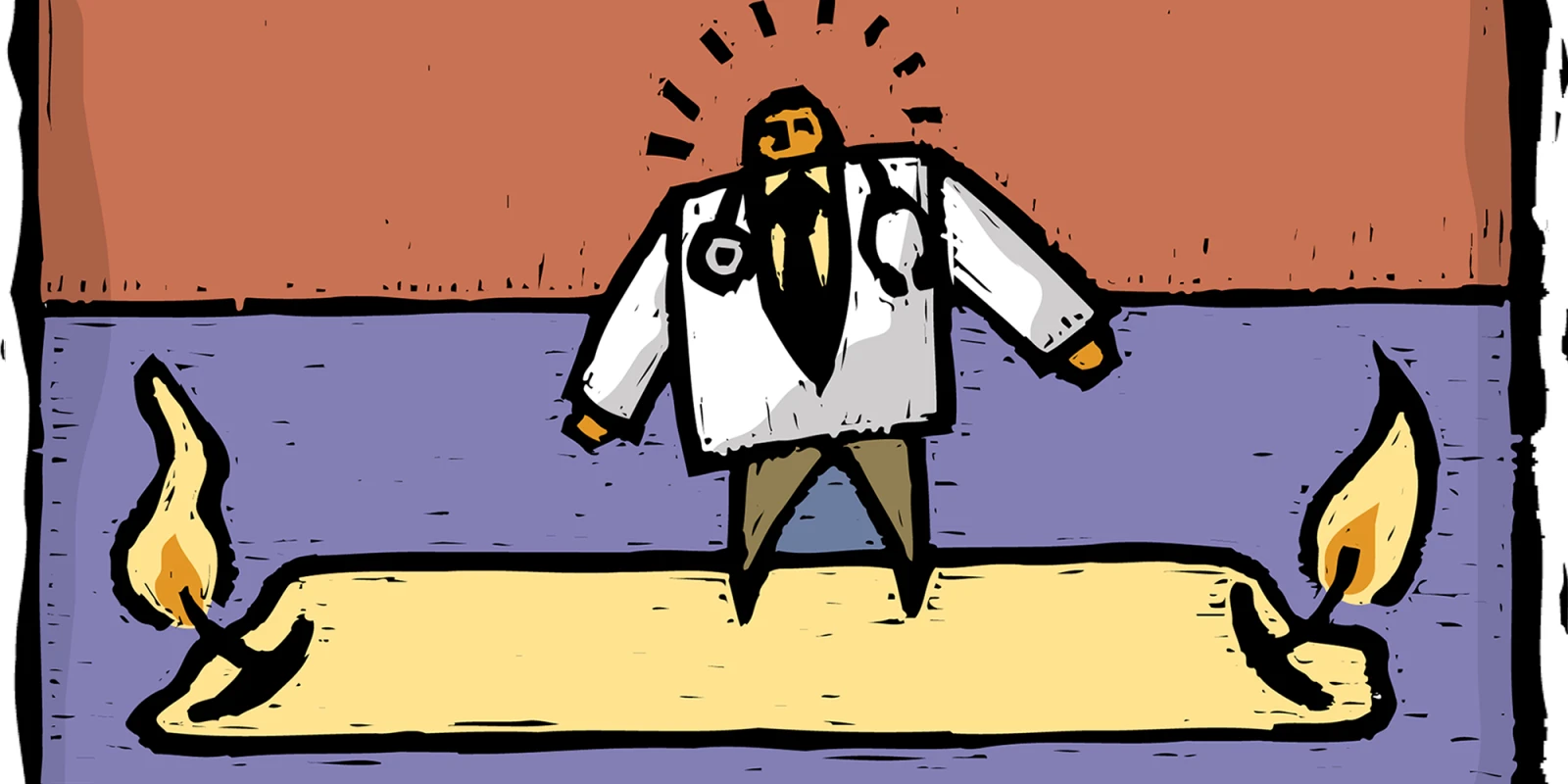
I am at a crux in my career. A turning point. And frankly, I'm just not sure which way to go. The one more year phenomenon pulls at me dearly as I consider dropping my identity as a physician for the unknown. Although I don't doubt that I will have plenty to do in my free time, letting go is not easy. Being a physician, seeing patients, has been my purpose in life since childhood. Although my career path will continue to include hospice work, I am strongly considering letting go of my nursing home patients. There has been one clarifying thought that keeps recurring whenever I contemplate such issues. The medicine fear factor.
I have been in a constant state of fear throughout my career.
No kidding. I only recently realized that this was not normal. Apparently, not everybody walks into the office every day with such angst.
Malpractice Fear
Every physician fears malpractice. From the first day they walk onto the medical wards after retirement when the statute of limitations runs out. We fear that someone will point a finger at us and say that we are lousy physicians. That we will be held accountable for someone's death or maiming, not because of our own negligence but because of a system that accuses first and asks questions later.
And it is not only accountability. There is profound economic fear also. Most malpractice policies insure up to a million dollars per case or three million annually. Every physician has heard a story of a settlement that has gone off the rails and driven a physician to poverty by collecting personal assets after the policy was used up.
This goes beyond a mild ache or pain. It is an avalanche of worry that fundamentally changes how a physician practices, interacts with patients, and feels about themselves.
This medicine fear factor induces much suffering.
One study shows that 75% of physicians in low-risk specialities will be sued during their career while the number leaps to 99% in high-risk specialities.
Medicare Fear
Medicare, as many governmental agencies, partially works by inciting fear in those who collect from them. Given that there is no way that the government could police every entity that bills them, they create an inane set of rules and regulations that are almost impossible to comply with. And then they aggressively investigate a few practitioners in an attempt to provide an example to scare the rest.
If you are caught up in Medicare's or the justice department's crosshairs, you are hosed. It doesn't matter if you are innocent or guilty. The cost of defending oneself and the emotional energy are nearly insufferable.
We all know someone who has unjustly been accused and had to cope with the consequences.
Medicare audits are a major medicine fear factor. The sight of the records request form is enough to send practices scurrying.
New Medicare legislation can also be as equally onerous. Politicians legislate and the practice of medicine is profoundly impacted at one stroke of the pen. We never know from year to year what new bit of compliance is going to come down and tear our practices apart.
Practice Fear
Everyone in every job makes mistakes from time to time. We are human. Yet when physicians make mistakes not only can they be sued, but lives can be lost. The medicine fear factor runs high when it comes to professional acumen.
We do our best to protect our patients from such mistakes by creating systems and habits. By checking and rechecking. By staying up late at night and reviewing charts. Yet no matter how diligent, with the complexity of the human body and the deluge of paperwork and compliance being flung our way, we are bound to fail sometimes.
Final Thoughts
I have been in fear every day since I received my medical license. This fear is so deep and so profound that I am not even sure what life looks like without it. It has haunted my dreams and frustrated my days. The medicine fear factor is real and has given most of us PTSD. No wonder physician suicide is at an all-time high and burn out is becoming part of the healthcare lexicon.
It certainly makes a financially independent guy like me wonder why I still practice.
The author is a Hospice doctor who writes about the intersection of medicine and personal finance at diversefi.com.






